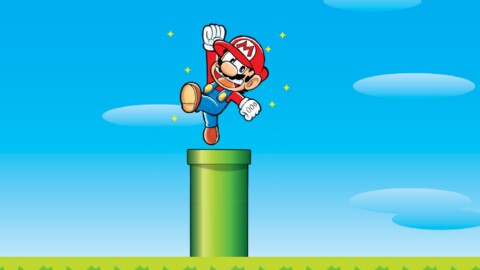
We’ve all seen the early signs, experienced the shock and sadness of watching a close friend or relative succumb to reactionary lies. The idea that it’s immigrants that have been underfunding the NHS since 2010, perhaps, or that it’s possible to get several hundred thousand identical fake ballots counted and verified just by lobbing them through the window of a voting station in a massive sack at 4am – all because of a grainy meme they saw on youtwatswillfallforanything.com.
There are protocols in place for such eventualities, to help you gradually ease them out of your life. The social media mute. The WhatsApp remove. The gentle but prolonged cough down the phone a week before Christmas. But when it’s one of your musical heroes turning up to cheer on the inciting of an anti-democratic terrorist insurrection by military-trained white supremacists and neo-Nazis with pipe bombs, zip ties and vans full of home-brewed napalm – as fans of chillwave Trump chump Ariel Pink are discovering this week – things get far more complicated. Unlike your family, you’re emotionally invested in them.
Discovering that a musician you’ve shared a remote empathetic relationship with has views and opinions vastly at odds with your own is an inevitable generational revelation. Liberal ‘60s blues rock fans got a shock in 1976 when Eric Clapton told the black members of his audience to leave the country, presumably leaving behind all their songs so that he still had something to play. ‘80s indie fans have been wrestling with what’s become known as the ‘But, but, but – ‘Vauxhall And I’ conundrum – aka The Morrissey Problem – for several years. Long-term punks might have thought they got off lightly with just Skrewdriver and the odd murderer, until John Lydon turned himself into a one-man Trump billboard.
Pre-internet, it was simply a case of simply pretending you hadn’t read the offending opinion for a couple of years until the inevitable “I was pissed” apology crept into the music press. These days, there’s a more complex process to navigate when your pop heroes, as is increasingly de rigueur, reveal their politics to be marginally to the right of Genghis Khan.
Unlike with the standard stages of grieving, you skip the shock stage, since we’re now fully anaesthetised to public figures doing Very Bad Things, and dive straight into denial. Even as their label drops them, their associates desert them and more objective commentators point out all their previous form and refusals to get their round in, you’ll shut out all the noise and try to tell yourself there must be a perfectly reasonable explanation. How could this poor, hounded kitten possibly be a fascist when they moved you so much?
At core, you’re wrestling with a clash of nostalgia and embarrassment. Fondness for a time, barely minutes before, when you could enjoy their music guilt-free, and shame at being fooled into fandom when all of Judgemental Twitter, with their perfectly attuned hatedars, could instinctively tell they were a wrong ‘un.
To convince yourself you’re not a bad person, you’ll find yourself scouring social media for posts supportive of your hero. Either you will recognise the total delusion in all the disbelieving apologists and set yourself on the road to ultimate recovery or, out of musical allegiance alone, start to entertain the excuses and begin to slip down the rabbit. Maybe he was misquoted, maybe there is a media plot against him, maybe we should burn democracy.
If you manage to survive your idol’s inevitable Twitter trending with any trace of fandom left, the denial stage will last until they release some new music. You’ll listen to it, it’ll be just as good as all the stuff you liked before, but now you’ll feel a little tainted, not least because there’ll be an undercurrent of victimhood in the lyrics of songs called ‘With Me Or Against Me’ and ‘Out Of Context Blues’. You’ll start to categorise their music into Before and After, trying to convince yourself that it’s okay to like their old albums, but their new material is no-go. You’ll try to go back and listen to their old albums, but they’ll feel tainted too. Bargaining and depression rolled into one.
Finally, crunch time. They do a gig. You go along, but the chat in the pub beforehand is all about The Conundrum, you keep your head down in case anyone from work sees you going in and the crowd feels different, divided. There’s a real us-vs-them mentality; the moshpit, now spattered with pushy, bald mod blokes in buttoned-down shirts that weren’t there before, is all the more fervid and devoted, while you and your liberal apologist mates all stand uncertainly at the side, too uncomfortable to get into it. The singer makes a flippant comment rom the stage, half the crowd cheers and you leave before the end.

Alternatively, you could save yourself all this inevitable stress and heartache, leap straight to the acceptance stage and cut them cleanly out of your listening habits from the off. Consider their early albums as a wistful folly of your youth, but listen to the music they inspired instead. It’s the fast track to aural denazification, and boy, it feels good.
The post So, you’re ideologically opposed to your favourite pop star. What next? appeared first on NME | Music, Film, TV, Gaming & Pop Culture News.






